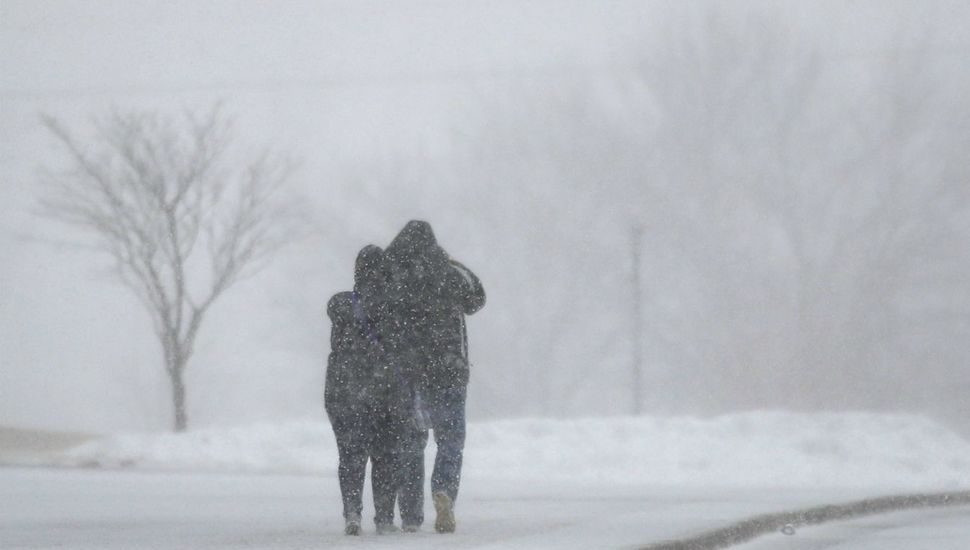
“As we walked along it started to snow those big fluffy snowflakes, the biggest I’d ever seen! And I thought, I never knew it was possible to be this happy.” My mother sits next to the wood stove folding and unfolding her hands. Her hands are long-boned, the skin papery thin; easily bruised, they are mottled with age and as fragile as bird bones. She is describing how she felt one snowy Christmas Eve morning, walking down a rural dirt road with her husband of only seven weeks. In my mind’s eye I see them holding hands; of course, they always held hands, two figures captured in a shaken snow globe, the glittery snow swirling all around them.
To really understand the weight of my mother’s words you have to know something of her life before that moment. On my daughter’s twenty-third birthday my mother told her, “By the time I was twenty-three my mother was dead, my father was dead, my first husband had just died and I had a two-year old and a six-month old to take care of and no clue how I was going to do it.” An only child, her beautiful Christmases had ended at the age of twelve when her adored and adoring mother died. Her remaining Christmases on the farm, spent with her uncommunicative father, were barely acknowledged and horribly lonely.
Her early adulthood was also tragic. Now sitting together in my house, for the first time, I think to ask her how many Christmases she spent alone after her first husband’s death before she met her second husband, my father. Stan had been a US Marine and after the war they’d married and moved to my mother’s beloved Annapolis valley. (She was born and raised in the States but her parents were Maritimers and she’d spent every summer in the little community of South Williamson with her lively adventurous girl cousins.)
When Stan proposed she’d answered, “Yes, if you are going to live in Nova Scotia because that’s where I’m going to live.” She pauses now thinking, and then she begins to reconstruct time on her slender fingers. “Stan and I had one Christmas before he got sick. Then the next Christmas he was in the VG in Halifax for cancer treatments. The Christmas after that he was home but he really shouldn’t have been.
They took him back to the hospital Boxing Day in the milk truck. It must have been a terrible ride for him but he never said a word. He died on January 6th. “ She pauses to reach back and turn those sad years over in her mind. “The next Christmas I went to the States to be with family there but the kids had the measles where I was staying with my kids, so we were uninvited to Christmas dinner.” She laughs a little then shakes her head, “It was a sad Christmas because I had no money to get the boys a toy. They were too little to know what Christmas meant so they wouldn’t have cared but I cared. I wanted so much to get them a toy.” Then there were two more Christmases alone with the boys with so little money. “I don’t remember anything about those ones,” she says softly.
I think of my father, the other figure in my imagined snow globe, and his very difficult life up until that moment on their walk. His family was always poor but when his father had left his mother and moved out west, the year Dad turned fifteen, things became dire. The eldest of nine, he’d quit school to go to work to put food on the table. The only things I know of his early childhood Christmases was that every year his grandfather gave the family a 100 weight of flour as a present. “Kid-like I wanted toys,” he told me once, “so I asked my mother why he would give flour as a present and she told me in no uncertain terms that that flour from granddad kept us from starving.” The other thing I knew was that my father had got his baby sister a doll the year she was born and every Christmas after that until she was sixteen and married.
The reason they were walking on that rural road Christmas Eve was because they were “going over town” to get presents for the boys. They’d decided to walk the six miles (there and back) to Jean’s Pharmacy because there was only enough gas in the car to get Dad back and forth to his job at the telephone company until payday. Jean’s Pharmacy was a fixture in the Annapolis valley for years. Eleven months of the year it was just a pharmacy but in December the rope that cordoned off the upstairs staircase was removed and a magical world of a real toy store was revealed.
“I remember we bought the boys each a sweater and a little teddy bear. When we paid, Jean said, “You two never walked all the way here in this storm?’ ‘Well, yes,’ we said.” ‘Well’ he said ‘you’re not walking home.’ And then he locked up the pharmacy and drove us home.” Of course a man who kept a magical toy store just for Christmas above his business, would be a man so kind as to close up his shop and drive a young couple home through a storm on Christmas Eve.
“That was my best Christmas ever”, she says as one slender hand clasps the other as it once clasped the hand of her beloved husband. She closes her eyes transported back onto that snowy road, and into the astonishment of her perfect happiness. Perhaps she’d said those words to my father, I never knew it was possible to be this happy or perhaps her thought simply travelled like an electrical charge through her hand to his.
On that snowy Christmas Eve walk, a course was set for their marriage, that, no matter how little money they had or how many times having to move house forced them to start over again, each of them never lost sight of their deep appreciation of having found the other. And for all sixty years of their lives together every Christmas was more than Christmas because each one was imbued with the joy they’d felt that first Christmas Eve as they walked down that rural road, the snow, like grace, floating down around them.
Catherine Banks lives and writes in Sambro, Nova Scotia.
See also: My father’s gift, a Christmas memory
With a special thanks to our generous donors who make publication of the Nova Scotia Advocate possible.
Subscribe to the Nova Scotia Advocate weekly digest and never miss an article again. It’s free!



